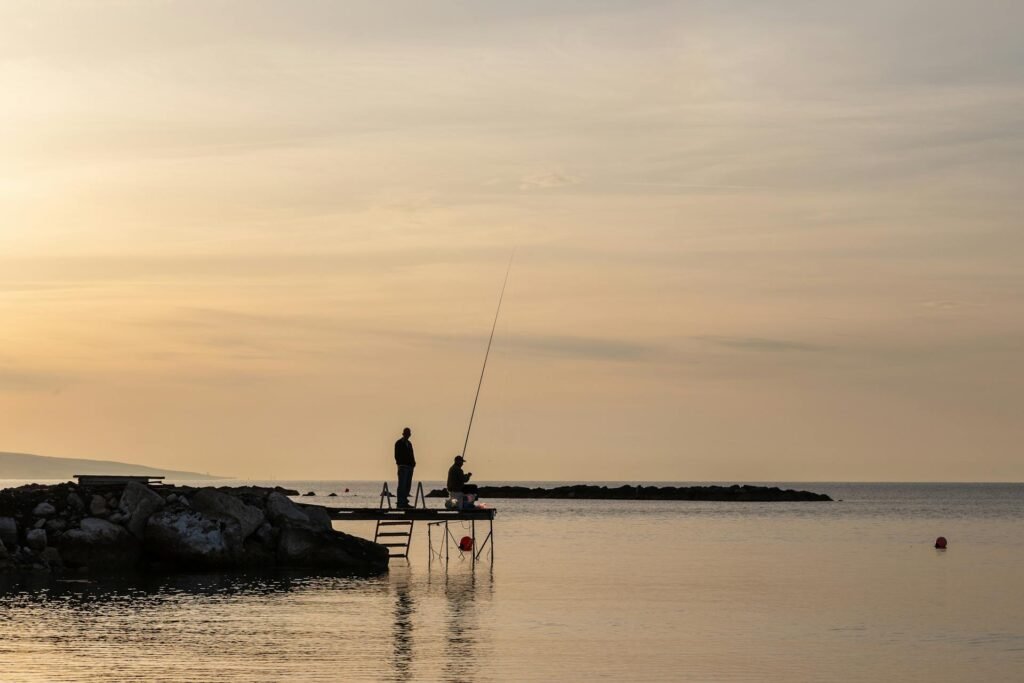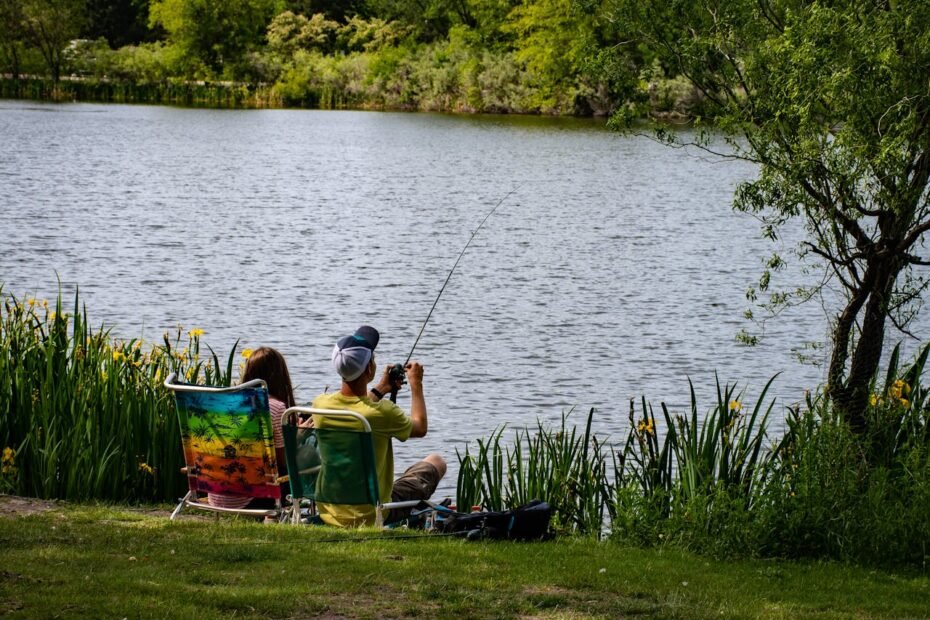If you’re planning to fish in the Sunshine State, whether in its oceans or lakes, you’ll need a fishing license. Florida is home to diverse marine life and freshwater species, making it a paradise for anglers. Getting one is straightforward and allows you to fish legally while contributing to the conservation efforts protecting Florida’s fish species. Here’s a step-by-step guide on how to get your fishing license in Florida.
Why You Need a Fishing License in Florida ?
Purchasing a fishing license is more than a formality, it helps fund conservation efforts to protect the state’s aquatic environments. Furthermore, licenses help maintain a sustainable fish population by supporting fishery management programs. With over three million people fishing in Florida annually, license fees play a significant role in maintaining the state’s fisheries.
Types of Fishing Licenses in Florida
To begin, it’s important to know which type of fishing license suits your needs. The Florida Fish and Wildlife Conservation Commission (FWC) offers several types of licenses. Below are the fishing licenses based on factors like residency, age, type of water body you’ll be fishing in:
Saltwater Fishing License: If you plan to fish in Florida’s saltwater areas, like the Atlantic Ocean and the Gulf of Mexico, you need a saltwater fishing license. This license covers all species in saltwater environments.
Freshwater Fishing License: For fishing in Florida’s freshwater rivers, lakes, and streams, a freshwater fishing license is necessary. This license is perfect if you’re targeting bass, trout, or crappie.
Combination License: The combination license is convenient if you intend to fish in both saltwater and freshwater areas. It allows you to fish in both environments without the need for two separate licenses.
Special Permits for Specific Species: If you want to fish for species like snook or spiny lobster, you’ll need an additional permit. These permits are often seasonal, and you should check their requirements on the FWC’s website.
Resident vs. Non-Resident Licenses: Florida residents can get lower-priced licenses, while non-residents will pay a higher fee. Non-residents also have the option of short-term licenses (three days, seven days, or a year).
In addition, Florida also offers recreational hunting and fishing combination licenses, which allow you to hunt and fish with a single license.
Who Needs a Fishing License in Florida?
Most residents and non-residents aged 16 to 64 will need a fishing license in Florida if they plan to catch freshwater or saltwater fish. There are different licenses depending on the type of fishing you’ll be doing and whether you’re a resident of Florida or visiting. Generally, if you’re over 16 and plan to fish in Florida, you’ll need a fishing license. However, there are exceptions:
- Florida residents aged 65 or older with a valid ID showing proof of age and residency are exempt from purchasing a fishing license.
- Regardless of residency, children under 16 are not required to obtain a fishing license.
- Residents who fish from their land do not need a license.
- Florida offers several free fishing days each year, allowing anyone to fish without a license on those days.
- Military personnel stationed in Florida or home on leave
- Fishing from a licensed charter boat or pier, exempts a license, as the boat or pier’s license covers all anglers.

Step-by-Step Guide to Get a Fishing License in Florida
Step 1: Choose the Right License
Before you buy a fishing license, choose the license you need based on your residency and fishing preferences. Do you want a freshwater, saltwater, or combination license? Also, consider whether you need additional permits for specific species. If you’re planning a short trip, a temporary license is more suitable, while frequent anglers may choose an annual license.
Step 2: Determine Your Eligibility
Florida Residents: You’ll need proof of residency, such as a driver’s license, utility bill, or voter registration card. Active-duty military members stationed in Florida also qualify as residents.
Non-Residents: Out-of-state visitors are required to get a non-resident fishing license, and the fees are higher compared to residents.
Step 3: Purchase the License
There are several convenient ways to buy a Florida fishing license:
Online: Visit the Florida Fish and Wildlife Conservation Commission (FWC) website (GoOutdoorsFlorida.com) to purchase your fishing license online. This method is quick and allows you to print the license at home.
Phone: Call 888-FISH-FLORIDA (888-347-4356) to buy a license over the phone. You’ll receive a confirmation number that allows you to fish immediately until your physical license arrives.
Retail Locations: You can buy a fishing license at many retailers, including sporting goods stores, Walmart, or bait and tackle shops.
County Tax Collectors’ Offices: You can also purchase licenses in person at county tax collectors’ offices across the state.
Step 4: Pay the Fee
The cost of your fishing license will depend on your residency status, the type of license, and the duration. Here’s a breakdown of some common fees:
- Resident Annual Saltwater or Freshwater License: Approximately $17
- Non-Resident Annual Saltwater or Freshwater License: Around $47
- Combination License: Ranges between $32.50 and $50 for residents
- Special Permits (such as snook or lobster): Usually an additional $10
Step 5: Know the Regulations
Once you’ve purchased your license, make sure you familiarize yourself with Florida’s fishing regulations. These include size limits, bag limits, and seasonal restrictions that protect fish populations and ensure sustainable fishing practices. The FWC provides a comprehensive guide to the rules on its website.
Using Your Florida Fishing License
Once you have your fishing license, it’s valid immediately and will remain effective for the period you selected at purchase. You should carry a printed or digital copy of your license whenever you fish. If an FWC officer requests to see your license, you must provide it.
Additionally, Florida also allows digital copies of licenses, which you can store on your phone. Many anglers find this option convenient, especially if they frequently fish in remote areas where carrying physical documents is cumbersome.
Florida’s Free Fishing Days
Each year, Florida offers free fishing days that allow residents and non-residents to fish without a license. These days are designed to encourage newcomers to experience fishing without the cost of a license. The planned free fishing days include:
Freshwater Free Fishing Days: Usually the first Saturday in April and the second Saturday in June
Saltwater Free Fishing Days: Typically the first Saturday and Sunday in June and the first Saturday in September
These dates may vary slightly, so check the FWC website closer to the time for confirmation.
Frequently Asked Questions (FAQs)
- How long does it take to get my fishing license?
If you purchase your fishing license online or over the phone, you can print a temporary license immediately. Your physical license will typically arrive within 10 days. - Do I need a license to fish from a pier?
Yes, unless the pier has a blanket license that covers all anglers, you’ll need a saltwater fishing license to fish from a pier. - Can I fish without a license during free fishing days?
Yes, Florida offers free fishing days throughout the year when residents and visitors can fish without a license. These days are a great opportunity to try fishing without needing to purchase a license. - What happens if I’m caught fishing without a license?
Fishing without a valid license in Florida can result in fines, and in some cases, criminal charges. Always ensure your license is up-to-date and with you when fishing.
Conclusion
Fishing in Florida offers endless opportunities, from freshwater lakes brimming with bass to saltwater adventures in the Gulf of Mexico. By getting your fishing license, you’re not only staying within the law but also contributing to the conservation of fish populations. Whether you’re a resident or just visiting, the process of obtaining a Florida fishing license is simple and accessible. With your license, explore some of the best fishing spots in the world and make lasting memories on the water.
